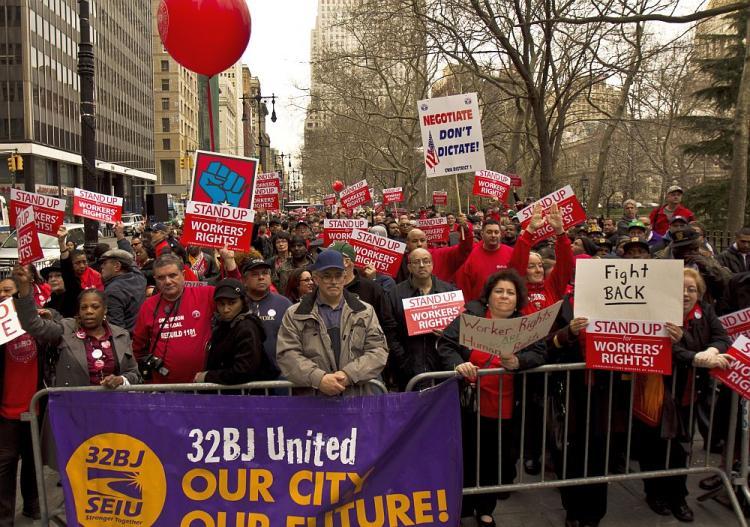NEW YORK—On the 43rd anniversary of his father’s death, Martin Luther King III released a statement Monday supporting the Fair Wages for New Yorkers Act. The act, introduced by several city councilmen and councilwomen in May 2010, would require developers using financial aid from the city to pay employees a fair wage.
“A majority of City Council members back the legislation. Now I urge the rest to embrace it,” stated King.
The fair wage proposed is $10 an hour, increasing with inflation and with an extra $1.50 if health insurance is not provided.
He expressed sympathy for the many New Yorkers and laborers throughout the nation making tough financial choices like “food or rent, clothing or electricity,” he said.
Martin Luther King Jr. was assassinated in Memphis, Tenn., on April 4, 1968, while standing on the balcony of his hotel room. He was in Memphis to support approximately 1,300 sanitation workers who were marching for better working conditions, including a better wage.
“What he was doing the day he was killed is often forgotten,” observed King. “On April 4, 1968, Dr. Martin Luther King Jr. was fighting for the creation of living wage jobs. In his view, it was both a moral necessity and a civil right that every working American should earn enough to live a decent life and not worry about basic survival.”
Hundreds of union workers rallied at City Hall Park, with hundreds of others marching across the Brooklyn Bridge to meet them. They invoked the passion of Martin Luther King Jr. for worker rights in light of the recent loss of collective bargaining rights in Wisconsin.
Vice president of the CWA, district one, Chris Shelton recounted how the sanitation workers King stood with in his final days marched to let the government and their employers know “I am a man,” and thus deserving of respect and fair wages.
“King was just as much a labor leader as a civil rights leader,” declared Shelton.
“A majority of City Council members back the legislation. Now I urge the rest to embrace it,” stated King.
The fair wage proposed is $10 an hour, increasing with inflation and with an extra $1.50 if health insurance is not provided.
He expressed sympathy for the many New Yorkers and laborers throughout the nation making tough financial choices like “food or rent, clothing or electricity,” he said.
Martin Luther King Jr. was assassinated in Memphis, Tenn., on April 4, 1968, while standing on the balcony of his hotel room. He was in Memphis to support approximately 1,300 sanitation workers who were marching for better working conditions, including a better wage.
“What he was doing the day he was killed is often forgotten,” observed King. “On April 4, 1968, Dr. Martin Luther King Jr. was fighting for the creation of living wage jobs. In his view, it was both a moral necessity and a civil right that every working American should earn enough to live a decent life and not worry about basic survival.”
Hundreds of union workers rallied at City Hall Park, with hundreds of others marching across the Brooklyn Bridge to meet them. They invoked the passion of Martin Luther King Jr. for worker rights in light of the recent loss of collective bargaining rights in Wisconsin.
Vice president of the CWA, district one, Chris Shelton recounted how the sanitation workers King stood with in his final days marched to let the government and their employers know “I am a man,” and thus deserving of respect and fair wages.
“King was just as much a labor leader as a civil rights leader,” declared Shelton.







